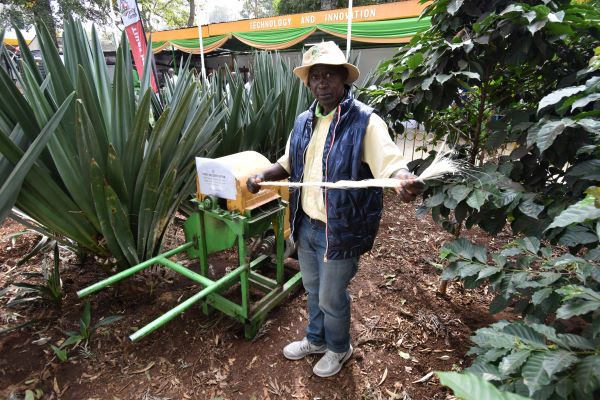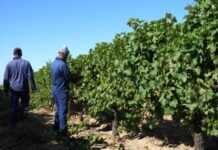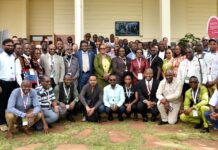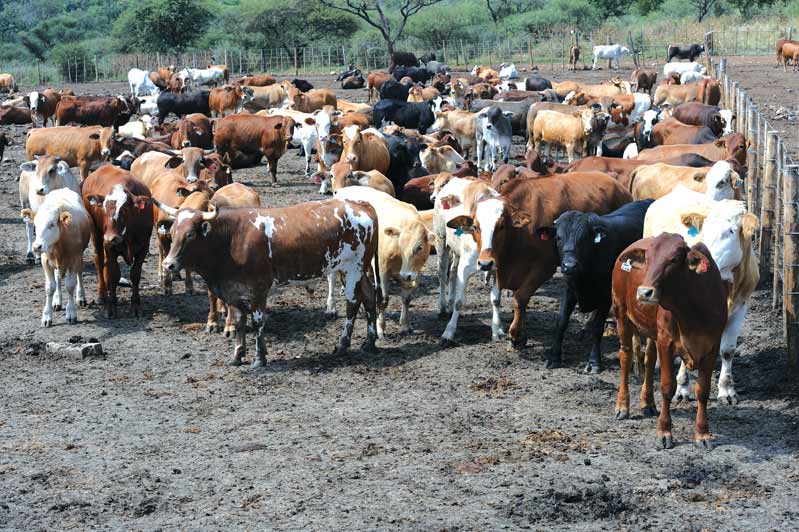By Zablon Oyugi
Sisal, which is the most important of the group of hard leaf fibres, is cultivated mainly in Tanzania, Brazil, Kenya, Angola and Mozambique but its cultivation has reduced despite its potential to earn farmers tidy sum in the wake of the ravaging climate change menace world over.
In fact, according to 2018 research by Aaron Mwaniki for South Eastern Kenya University (SEKU) on Factors Affecting Sisal Cultivation and Adoption in Kiomo Division, Kitui County in Kenya, the global sisal cultivation has been declining and in Kenya, for instance, sisal production has been on a decline since 1960.
As a result, says the research, sisal plantations are being replaced by other crops, with the fibre industries turning to synthetic fibres which have been proven to be environmentally unfriendly. Moreover, the vast majority of lands in arid and semi-arid areas which are not fertile go to waste.
This happens at a time the latest figures by Agriculture and Food Authority (AFA) indicate that the sisal sub sector currently supports approximately 30,000 farmers yet it has a potential to support over 150,000 farmers.
Planted in 12ft by 3ft spacing, an acre can accommodate up to 1,210 plants with each plant producing 200-250 leaves per harvest and each leaf producing 1,000-1,200 fiber bundles.
Currently a bundle of 27 sisal leaves goes for between Ksh12 and Ksh15 depending on the variety and market demand meaning an acre which can produce over 11,200 bundles per harvest can earn a farmer over Ksh168,000.
Promoting sisal production
Nevertheless, the situation might soon change thanks to the surviving farmers who are beginning to take the venture seriously and the promotion of sisal production by AFA.
This is evidenced by the authority’s figures indicating that in 2017, sisal exports earned Kenya Ksh2 billion but jumped to Ksh3.72 billion in 2019.
Ezekiel Nzue is a sisal farmer from Machakos County and he also extracts the crop’s fibre using a decorticator machine after training by AFA.
He says he started as a casual labourer in a sisal farm before learning about the authority’s search for willing individuals to be trained.
“I first met AFA officials around 2015 at an agricultural show in Nakuru where I got recruited given some experience I had in operating decorticator machine,” said Nzue adding that he would later be given the sisal fibre extractor machine to operate everywhere the authority had a field day training.
Soon, the Machakos farmer would buy his own machine in 2016 at Ksh125,000 to go on his own after gaining more experience in sisal farming, fibre extraction, and market linkages by AFA.
Today, Nzue is a happy farmer in his new-found venture where, using the mobile machine, he extracts up to 1000 kilos of sisal fibres a day of which some are from his farm while others he buys from other farmers.
“I no longer depend on casual labours anymore since this business can earn me enough for my family expenses including school fees which I could struggle with before,” he said adding that he currently has 600 sisal plants of which 45 are mature and ready for harvesting.
Offering direct market to other farmers
Nzue who currently works with farmers from Machakos and Makueni counties buys about 30 leaves at Ksh10 from the growers, extracts the fibres and sells to some companies in Nairobi at between Ksh130-150 thus offering direct market to fellow farmers.
“I have also recruited five young men who helps with operating the machine, sun drying the fibres and loading them for market,” he said.
He adds that the demand for the fibres is huge and he is looking for 100 more farmers with 2-3 acres from other regions such as Makueni to contract. “In a week, a serious farmer can earn up to Ksh21,000,” he said.
Some of the challenges he now experience are high cost of fuel and few farmers who are interested in sisal farming.
“I use to buy a litre of diesel at Ksh100 or even less when I started in 2016 but now the cost has even doubled to Ksh200 eating into my income,” said Nzue.








